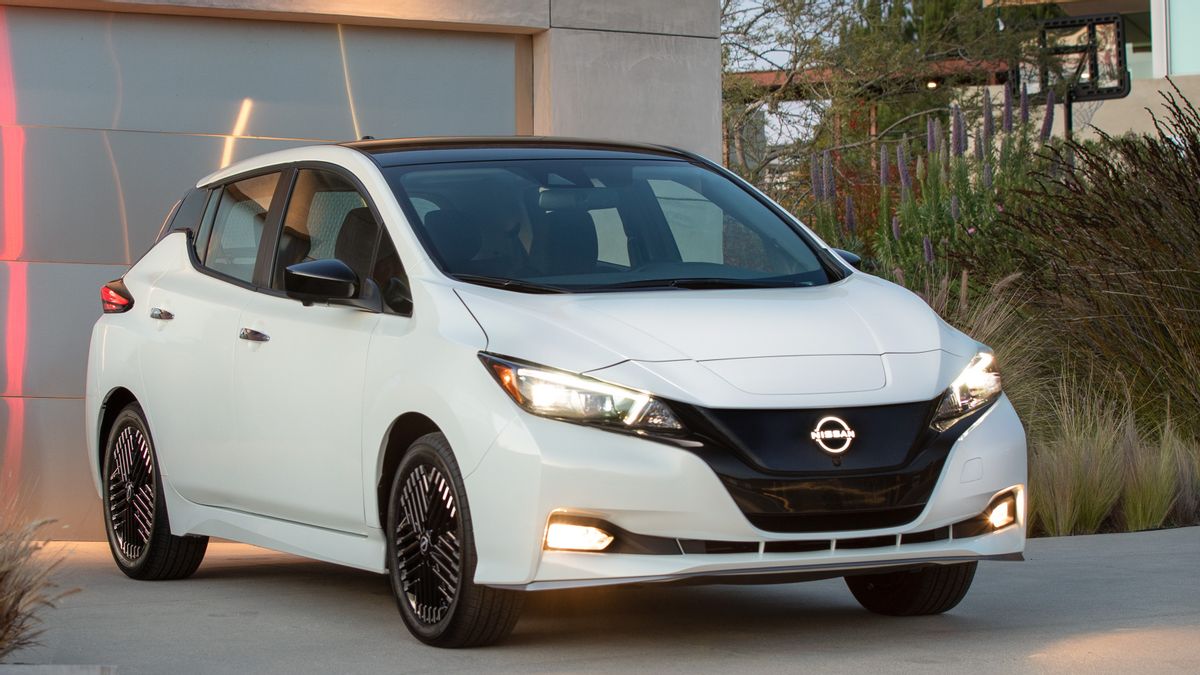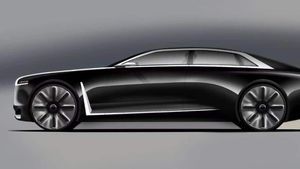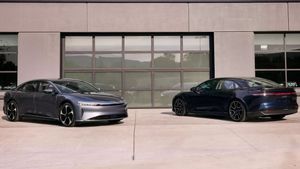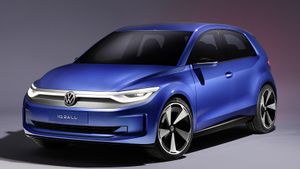JAKARTA - Nissan, an automotive company from Japan, is known as one of the pioneers of electric vehicles (EV) by launching the Leaf a decade ago. To support an environmentally friendly ecosystem, the manufacturer launched a service that accommodates zero emission sustainability.
Named 'Nissan Energy Share', the service presents a unique energy management technology that controls charging and charging of electric vehicle batteries.
According to the company's official website, Monday, February 5, Nissan has researched this system in managing energy through field studies and tests located in Namie, the prefecture of Fukushima, Japan, and validates its technology for charging and charging electric vehicle batteries independently.
The manufacturer says that EV batteries function not only as electric vehicle resources. The unit can power the building directly, so as to realize the potential of electric vehicles.
Equipped with a charging controller connected to charging or charging and emptying units, the system predicts the use of vehicle energy.
The 'Nissan Share Energy' obtains actual information about the remaining vehicle power and the use of energy in the building and independently determines optimal time for charging and charging.
This allows the shift in energy load and reduction without sacrificing the performance or comfort of vehicles. When connected to solar panels, users can directly consume renewable energy outside of the network produced on site, thus contributing to decarbonization.
This system provides smart control over optimal time to charge electric vehicles. In addition, the use of some electric vehicles does not affect the use of electricity in buildings.
SEE ALSO:
The sophisticated innovation also helps reduce the use of peak power in buildings by supplying power from electric vehicles to buildings when demand for high energy, reducing the use of electricity networks, and minimizing electricity bills.
The use of the system is also efficient and can be connected to buildings that have solar panels, allowing efficient supply and consumption of electricity depending on the power generated.
For example, electric vehicles are powered when solar power is generated in large quantities during the day and at night they supply electricity to buildings.
This technology will be offered to various sectors such as companies, the business world, and the city government. This service is designed to enable optimal energy management in line with customer needs and conditions.
Nissan also offers a one-stop service experience to customers. When implementing the system, customers can expect various supports including optimal solutions, equipment selection, installation vendors, and subsidy submissions.
The English, Chinese, Japanese, Arabic, and French versions are automatically generated by the AI. So there may still be inaccuracies in translating, please always see Indonesian as our main language. (system supported by DigitalSiber.id)














